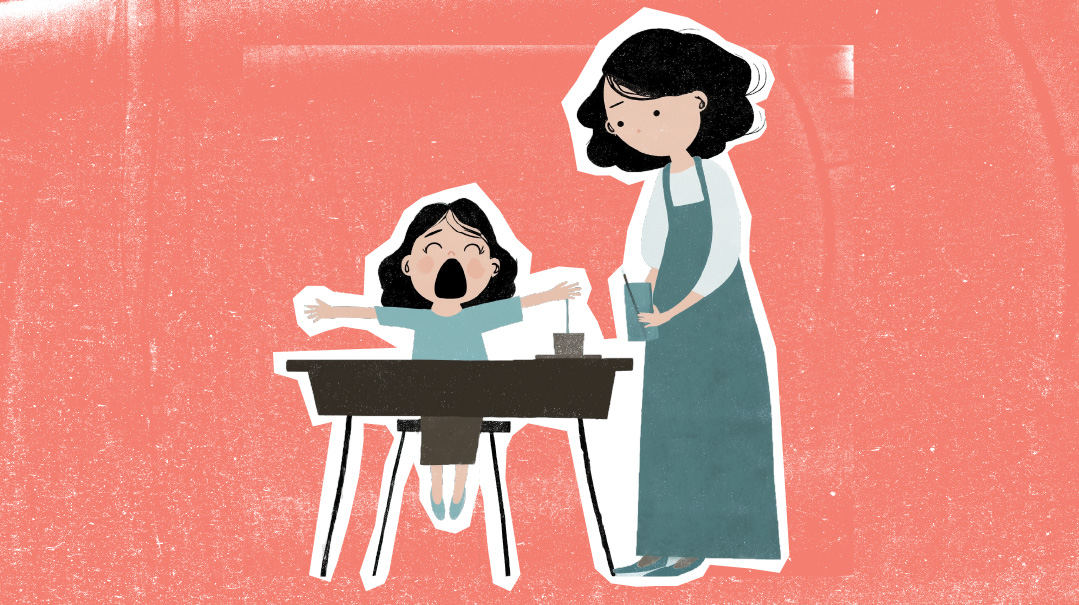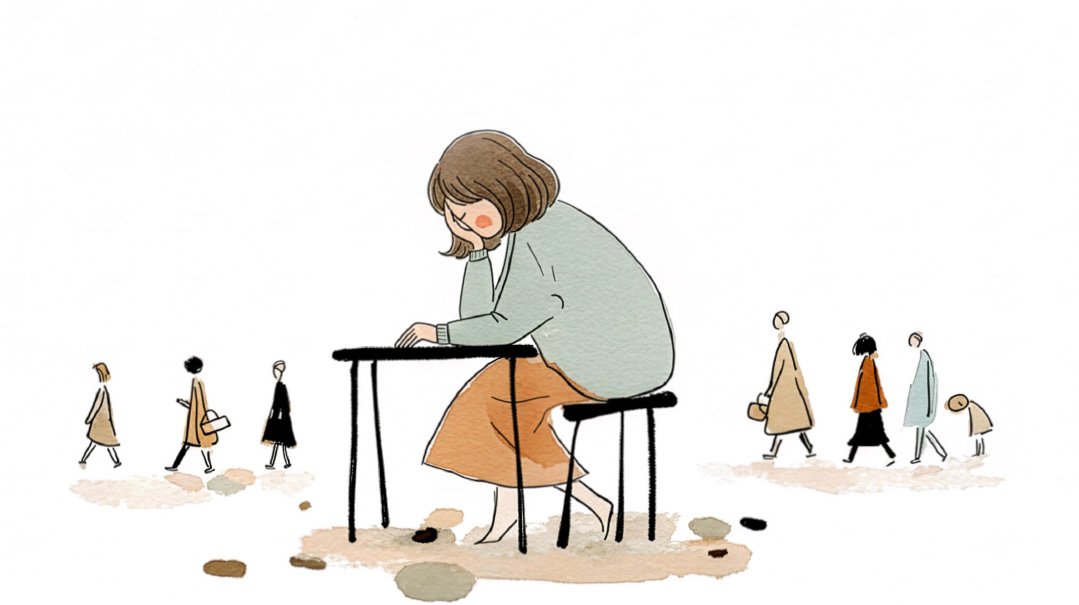Miserable Munchkins
| May 20, 2025I’m failing at making my kids happy. What am I doing wrong?

Q:
I don’t know if my kids are unusually demanding, but I find myself trying so hard to keep everybody happy, only to end up with a houseful of screaming, fighting, whining kids. For instance, my seven-year-old routinely wakes up on the wrong side of the bed. When I say a cheery good morning to him (knowing how important it is to start the day right and trying to make him feel loved), he growls back, “No it isn’t!” I try to tell him what a great day it’s going to be and what a super snack I’ve put in his lunch — I try really hard to put him in a better mood — but it never works.
Once I’m in the kitchen getting breakfast ready for everyone, each child has a problem. The nine-year-old is panicking that she can’t find the paper I’m supposed to sign for her teacher. The five-year-old wants pizza toast right now, and when I tell her we’re out of pizza toast and I can make her a delicious smoothie or a bunch of other options I beg her to accept, she screams, “Nooooooo! you have to make pizza toast now!” I think it’s so important to have a beautiful atmosphere in the home. I’m trying so hard, but I can’t seem to pull it off. What am I doing wrong?
A:
I can see one thing that you’re doing wrong — you’re trying to make everybody happy. What pressure you’re putting on yourself!
You know that kids are kids, right? They want what they want when they want it — especially if they’re only five years old. They have big emotions and a small toolkit for managing them. Your grumpy seven-year-old can’t yet elevate his morning mood and might not be able to do so for another decade or so. Your nine-year-old may be disorganized or anxious or both (or maybe she’s just a regular kid who can’t find her paper), but she’s at the age where she can’t really hold herself together through her distress.
Kids are naturally dysregulated, and although there are some who are more chilled than others, impatience, irritation, and other forms of immaturity are normal in children. Most grow out of it by the time they’re 50, or even sooner!
All joking aside, there really are some 50-year-olds who aren’t much better than your bunch — still grumpy in the morning, prone to panic, fussy, and inflexible. But when parents provide emotional guidance and a decent model, many youngsters do manage to eventually acquire some adequate stress-management skills. Your job is to help them do that by providing a good model and some good lessons, along with a generous dose of positive attention.
The first thing to do is to remain calm. When you see some miserable children in the morning, try not to panic. If your five-year-old doesn’t want any of the choices you offer her, why sweat it? By begging her to eat, you’re making an emergency out of her emergency, validating her emotional intensity. Maybe it isn’t a crisis if she can’t have her pizza toast.
Yes, it’s disappointing (go ahead and name that feeling for her), but no, it’s not the end of the world. Imagine what it would look like if you conveyed an “oh well” sort of attitude about the situation and carried on with your activities totally unflustered. Will she feel unloved and uncared for if you don’t ply her with goodies and knock yourself out trying to make her happy?
By remaining calm and unflustered, you’ll be helping her to learn that, yes, things don’t always work out the way we want them to and our best bet is to then pivot to Plan B. It’s your daughter’s job to do the pivoting here — not yours — and when you go overboard looking for solutions to her problems, trying desperately to make her (and your other kids) happy, you’re inadvertently depriving her of the opportunity to come up with her own problem-solving, happy-making strategies. You’re teaching her that it’s someone else’s job to make her happy — a lesson that will not serve her well in the long run.
In summary, the main thing I suggest that you change is your desperate attempt to make unhappy kids happy. By dialing down the urgency around their displeasure, you’ll teach them that negative emotions are, for the most part, passing and tolerable, much like the problems that humans face which are, for the most part, temporary and solvable.
Ironically, your kids are likely to be happier with a bit of emotional neglect than with exhausting, all-in efforts to keep them smiling.
(Originally featured in Family First, Issue 944)
Oops! We could not locate your form.







